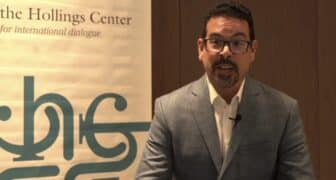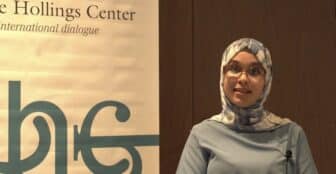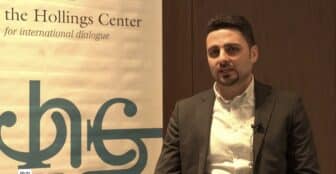Perceptions have weighed heavily on U.S.-Turkey relations and how American and Turkish leaders and the general public see one another. Despite an often robust bilateral relationship with the US, Turkish public opinion has always been skeptical of U.S. involvement in Turkey and the Middle East. On the other hand, U.S. public opinion on Turkey is usually uninformed or lacking important nuances. Though this has changed in recent years with Turkey becoming a strategic ally for the US on many fronts, there is still an information and communication deficit that hinders mutual understanding between the two societies. On both sides, public opinion can matter when making policy, especially when the two countries are trying to build a “model partnership” on many levels. Perceptions that lie at the root of public opinion and the opinion of leadership are deep-seated and hard to change. Recognizing this, the Center proposed to focus on a number of domestic and foreign policy issues that have caused strains in the U.S.-Turkey relationship in recent years, and through this discussion, contribute to decoding some of the deep-seated perceptions on both sides.
Dialogue participants were asked the following questions: Why do perceptions weigh so heavily on Turkey-U.S. relations? What are the foreign policy goals of each nation? What effect have foreign policy decisions in the recent past had on the relationship? Can public perceptions affect foreign policy and do foreign policy decisions in turn affect public perception? Have those perceptions changed since the Arab Spring and the crisis in Syria? What grassroots efforts are affecting the relationship? What are the future prospects for the Turkey-U.S. relationship as a new generation rises to leadership?
To address these issues, the Hollings Center convened a three-day Next Generation Dialogue entitled, “Decoding Perceptions in Turkey-U.S. Relations.” Held in Istanbul Turkey from November 13-16, 2013, the dialogue brought together scholars, journalists, civil society members, and policy makers to discuss this unique and important relationship, looking at not only the recent past but also looking into the future.
From the dialogue, the participants reached the following conclusions:
- While the relationship between the US and Turkey has experienced setbacks recently, the relationship is still comparatively strong with plenty of room for collaboration and cooperation. Misperceptions of both leadership and the general public are having an impact, but these can be rectified.
- The nature of the relationship between the US and Turkey has changed significantly in the last ten years, from a relationship established primarily for Cold War military and security cooperation to a more sophisticated relationship that promotes mutual interests of economic development and regional security. This has brought in more players that have a stake in the relationship both within and outside government institutions.
- The relationship suffers from crisis and triage fatigue, predominantly due to the lack of a defined policy of each government toward the other. The relationship must emerge from its crisis-to-crisis nature to be viable in the coming century.
- Current public perceptions of both populations towards each other suffer from monolithic categorizations that oversimplify. Effort needs to be taken to display the dynamic nature of each society, especially the diverse backgrounds and opinions that exist in each country. There are many “Turkeys” and many “Americas.”
- In foreign policy circles, perceptions have been marred by miscommunication and mixed messages on both sides. This has caused many of the recent setbacks in the relationship between Turkey and the US, but these can be corrected and overcome.
- For a strong relationship to continue into the future, the relationship will need to be actively cultivated and nurtured in younger generations. It will not persist on history or develop organically.



